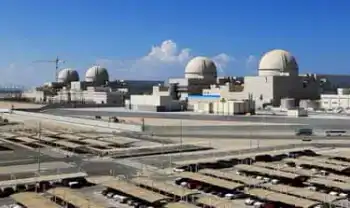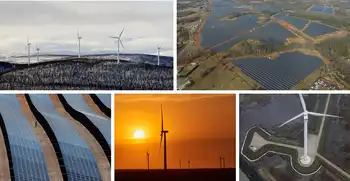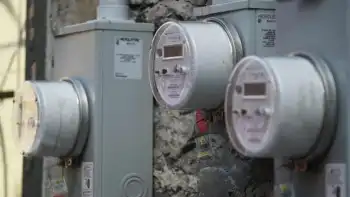Finnish minister calls for more nuclear power
HELSINKI, FINLAND - Finland should decide on building two more nuclear reactors by 2011, Finnish Finance Minister Jyrki Katainen said, opening door for more nuclear construction in the Nordic country.
Katainen's proposal comes when construction of Finland's fifth reactor, a rarity in largely nuclear-skeptical western Europe, is under increasingly heavy criticism from environmental groups who say safety requirements are not met at the site.
Construction firms, Areva and Bouygues, and Finnish radiation authority STUK, who monitor the project, have rebuffed the claims.
The progress of the Olkiluoto site, which has faced a two-year delay, is being closely watched by older EU member states, wary of piling back into new nuclear projects.
Fortum, Teollisuuden Voima and a consortium lead by E.ON are looking to build in total three more nuclear reactors in Finland, but so far leading politicians have said at best one of them could approved during current cabinet's term which runs until 2011.
"The key is to be self-sufficient in energy," Katainen told national broadcaster YLE. "I do not love nuclear, or any other source of energy, but for me it is important that emissions are as low as possible."
Katainen's call is likely to cause political storm as small coalition partner, the Greens, have been openly against building more reactor and Centre Party, main coalition force together with Katainen's National Coalition, has so far said one more reactor is enough.
Four nuclear reactor supply 25 percent of Finland's electricity, while around 15 percent comes from neighboring Russia, Estonia and Sweden, according to Finnish Energy Industries.
Bouygues, the subcontractor leading engineering work at Olkiluoto site, said it had never received complaints about the quality of welding works now questioned by Greenpeace, who says it has found cases of misconduct in the approval of the safety-critical parts of the structure.
"The group has never received remarks by STUK (the nuclear safety authority), (utility) TVO or Areva regarding the quality of its welding works," Bouygues said in a statement.
Greenpeace had said the company, contracted by French constructor Areva, failed to provide its welders with the technical parameters for the welding and materials used, a move that might have compromised the quality of the welding.
Greenpeace says STUK had asked a year ago for weld tests to be performed, but failed in ensuring they happened.
Greenpeace also said Bouygues failed to put a qualified welding supervisor immediately in place after the former one resigned in October 2007.
"The welders have been left on their own, without any competent supervision," said Greenpeace official Lauri Myllvirta.
Bouygues did not comment on that, but said no structural welds were constructed in the period until a new supervisor was appointed in February this year.
Related News

Iraq plans nuclear power plants to tackle electricity shortage
BAGHDAD - Iraq is working on a plan to build nuclear reactors as the electricity-starved petrostate seeks to end the widespread blackouts that have sparked social unrest.
OPEC’s No. 2 oil producer – already suffering from power shortages and insufficient investment in aging plants – needs to meet an expected 50% jump in demand by the end of the decade. Building atomic plants could help to close the supply gap, though the country will face significant financial and geopolitical challenges in bringing its plan to fruition.
Iraq seeks to build eight reactors capable of producing about 11 gigawatts, said Kamal Hussain Latif,…




